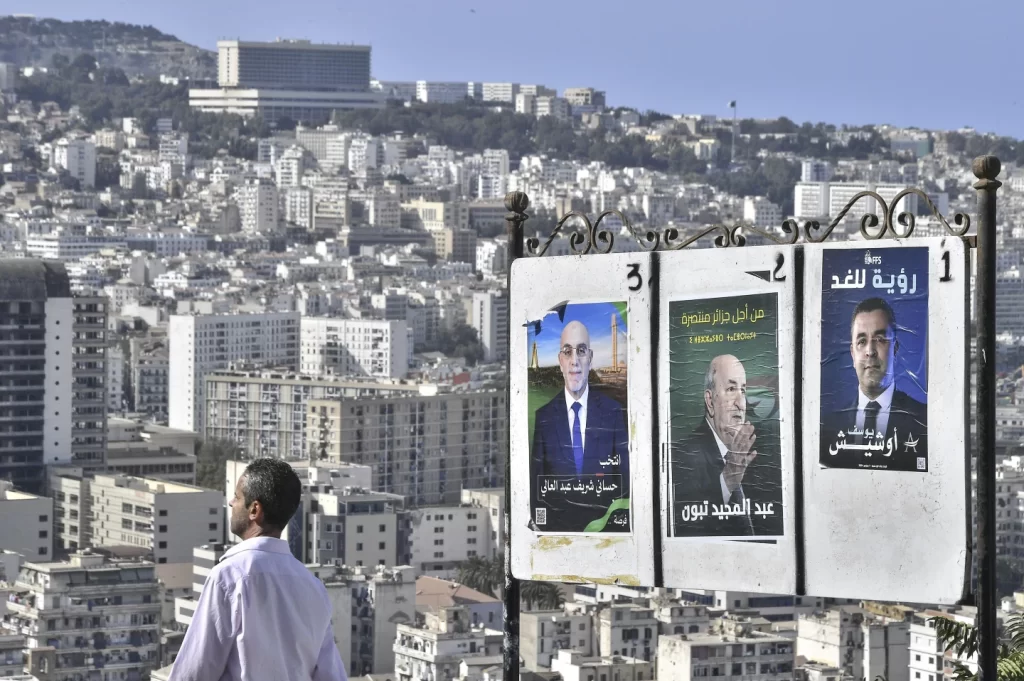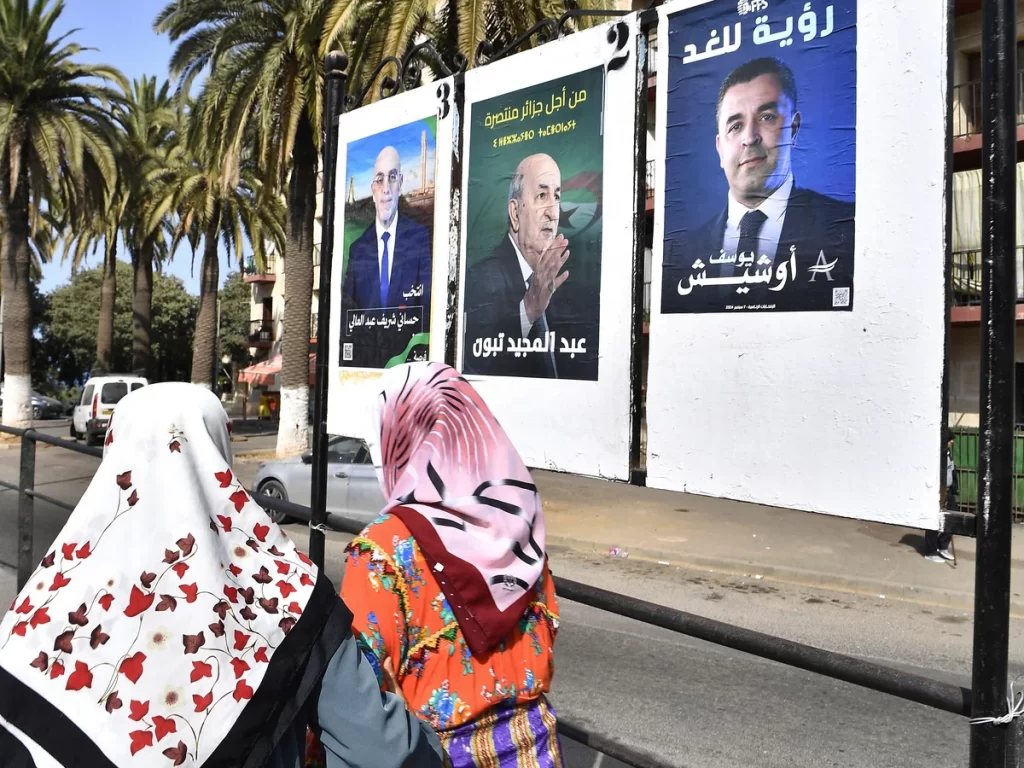Algerians are set to vote Saturday in a presidential election where incumbent Abdelmadjid Tebboune, 78, is widely expected to secure a second term.
The election comes five years after pro-democracy protests led to the military-backed ouster of longtime President Abdelaziz Bouteflika, marking a significant moment in Algeria’s political landscape.

Algeria, Africa’s largest country by area and second most populous with nearly 45 million people, is one of over 50 nations holding elections in 2024. However, the campaign has generated little enthusiasm among the populace, with many viewing the outcome as predetermined. Public interest has been notably low, with campaign activities primarily visible on state television, where coverage is mandated.
Tebboune, who first took office in December 2019, is running as an independent candidate with support from several political parties, including the historically dominant National Liberation Front. He has framed his first term as a turning point, telling voters at a recent rally that he “put Algeria back on track.” Tebboune’s campaign, referring to him as “Uncle Tebboune,” has sought to present him as a familiar and trustworthy figure to the electorate.

The president faces two challengers in this election. Abdelali Hassani Cherif, 57, an engineer from the Islamist Movement of Society for Peace party, is campaigning on youth issues and education reform. His platform includes calls for boosting employment and reforming the education system, particularly addressing the role of the French language alongside Arabic.
Youcef Aouchiche, 41, a former journalist representing the Socialist Forces Front, is focusing on human rights and press freedom concerns. Aouchiche’s party, which enjoys strong support among ethnic minorities in central Algeria, is fielding a presidential candidate for the first time since 1999.
Both opposition candidates have emphasized increasing voter turnout rather than directly criticizing Tebboune, a strategy that analysts suggest is more focused on positioning for the 2025 legislative elections than seriously contesting the presidency.
Andrew Farrand, Middle East and North Africa director at geopolitical risk consultancy Horizon Engage, notes that this approach allows the candidates to mobilize their base, build campaign infrastructure, and maintain favorable relations with authorities.

Tebboune’s 2019 victory was marred by low voter turnout, widespread boycotts, and Election Day unrest. Only 39.9% of eligible voters participated in that election, which was marked by protests and calls for systemic change. This time, Tebboune hopes for higher participation among the country’s 24 million eligible voters to bolster his legitimacy both domestically and internationally.
However, many Algerians remain skeptical of the electoral process. Kaci Taher, a 28-year-old voter, expressed a common sentiment to The Associated Press: “Voting has no meaning in Algeria like in the big democracies.
Where I come from, the results and quotas are fixed in advance in the back room of the government, so what’s the point of taking part in the electoral farce?”
The election takes place against a backdrop of ongoing economic challenges and concerns about political freedoms. Critics argue that Tebboune’s government has continued to suppress dissent and limit press freedoms, issues that fueled the 2019 protest movement known as Hirak. These concerns have led some opposition figures and parties to boycott the election entirely, denouncing it as a mechanism to entrench existing power structures.
Source: apnews.com



